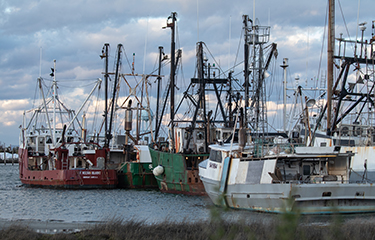Stimson Center calls for SIMP expansion beyond current NOAA proposal

The Stimson Center, a nonprofit, nonpartisan Washington, D.C., U.S.A.-based think-tank, is calling on NOAA to expand the Seafood Import Monitoring Program (SIMP) beyond the current proposal offered by the administration of U.S. President Joe Biden.
SIMP was created six years ago to block the import of select seafood products that had been mislabeled or harvested through illegal, unreported, and unregulated (IUU) fishing. The program currently targets 11 species groups, but NOAA Fisheries announced a plan in January 2023 to expand the program and more than double the number of species it targets.
Calls for expanding SIMP have come from multiple directions in recent years, with some members of the U.S. House of Representatives pushing to expand the program in order to increase the traceability of seafood entering the U.S. U.S. Representative Jared Huffman (D-California), the head of the U.S. House Natural Resources Subcommittee on Water, Oceans, and Wildlife, pushed for an expansion of SIMP in the wake of Russia’s invasion of Ukraine in order to enforce what he called an “unenforceable” U.S. ban on Russian seafood that stemmed from an executive order issued in March 2022.
“While the executive order in theory is supposed to block seafood imported directly from Russia, how will it actually work if none of the seafood is required to be tracked?” Huffman said during a committee hearing in April 2022. “Unless that fish is one of the 13 species that happen to be covered by SIMP, the Russian origins of this seafood is untraceable, and the ban is impossible to enforce.”
Stimson Center Senior Fellow and Director of the Environmental Security Program Sally Yozell said during the same hearing that without closing loopholes any ban on seafood wouldn’t work.
Now, almost exactly a year later, Yozell and Stimson Center are again calling for the expansion of SIMP in comments submitted to NOAA, and the center is claiming the current proposed expansion doesn’t go far enough.
“The proposed rule is a disappointment. It does the bare minimum and provides little evidence why certain species were chosen and others ignored,” Yozell wrote in public commentary on the proposal. “It does not go far enough to address the problems of illegal and fraudulent seafood imports entering the U.S. market or address labor concerns.”
NOAA is extending the program to 18 species or species groups, which would expand the number of individual species covered under SIMP to 1,670. That does not far enough, Yozell said.
“As drafted, it only proposes to expand SIMP traceability requirements to eight species groups – representing a five to 10 percent increase in the program’s current coverage,” Yozell said. “This amounts to just over half of all seafood imports covered by SIMP, and therefore the door remains open for billions of dollars of IUU-caught and mislabeled seafood products to flood the U.S. market.”
Yozell called on NOAA to add more species, including blue swimming crab, salmon, and pollock, and asked NOAA to include forced labor concerns in the seafood supply chain.
“This contravenes the Biden administration and NOAA’s own stated priorities and ongoing efforts to include labor in its work to combat IUU fishing,” Yozell said.
The National Fisheries Institute opposes SIMP expansion, based on shortcomings the government itself has acknowledged. NFI Vice President of Communications Gavin Gibbons said a 2022 NOAA report to Congress admitted the program does not stop illegal products from entering the U.S. market. He said, originally, the primary goal of SIMP was to protect at-risk species.
“Attempts to expand SIMP to other species, under the guise of a more-comprehensive program, undercut an actual focus on risk,” Gibbons said soon after NOAA unveiled its proposal. “NFI is committed to sustainable seafood trade and will participate in the comment process as this proposal moves forward.”
Photo courtesy of Ben Von Klemperer/Shutterstock





Share